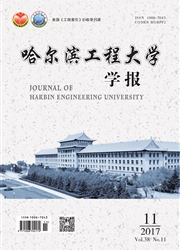

 中文摘要:
中文摘要:
为了在主用户得到充分保护的前提下缩短频谱检测时长,将序贯能量检测器应用在认知无线电中是一种复杂度相对较低的有效检测方法.首先在序贯能量序列似然比分析基础上,讨论了信噪比和虚警概率对序贯能量检测器平均采样点数的影响.建立了认知系统吞吐量优化的数学模型,通过凹函数最优化理论对其进行理论推导和论证,得出存在一个最佳系统参数值使得认知用户吞吐量最大的结论.最后通过仿真验证了理论结果的正确性.
 英文摘要:
英文摘要:
To reduce the spectrum sensing slot duration, sequential energy detection in cognitive radios was seen as a relatively lower complexity spectrum of sensing technology under the constraint that the primary users were sufficiently protected. Based on likelihood ratio analysis of sequential energy signal sequence, the authors theorized that false probability and signal noise ratio have an impact on the average sampling number of sequential energy detection. The mathematical model of optimal throughput for cognitive radios was established, and it was deduced by the concave function optimization theory. It was concluded that there is an optimal system parameter value to cause the maximum throughput of the cognitive users, and this conclusion was confirmed by simulations.
 同期刊论文项目
同期刊论文项目
 同项目期刊论文
同项目期刊论文
 期刊信息
期刊信息
